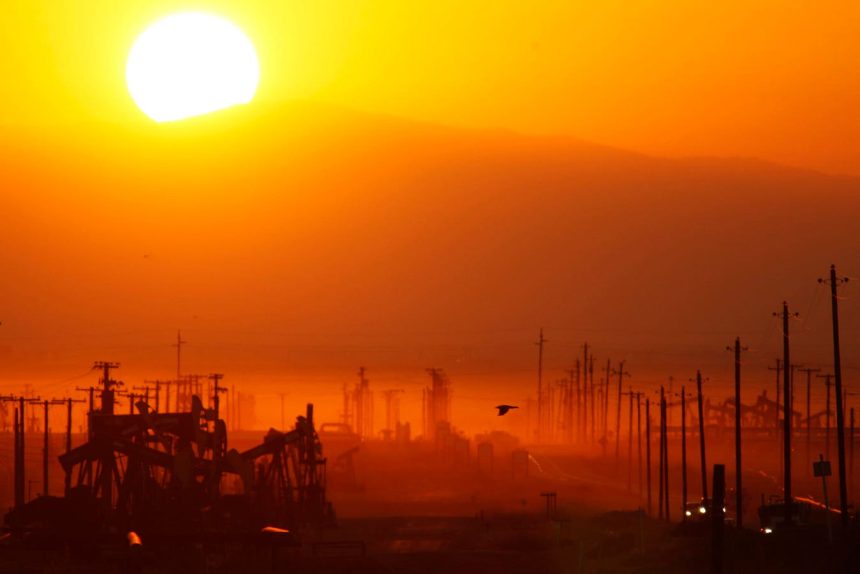The year 2024 is virtually certain to be the warmest on record, a trend that has become alarmingly commonplace. While declaring record-breaking temperatures might seem routine, the underlying reality demands urgent attention. This isn’t just about surpassing previous highs; it’s a blaring siren from our planet, signaling the escalating pace of climate change. The World Meteorological Organization (WMO) issued a stark warning in November 2024, highlighting the unprecedented rate of temperature increase over a relatively short period. From June 2023 to September 2024, each month’s global mean temperature likely exceeded any previously recorded, often by a significant margin. The surpassing of the 1.5°C threshold above pre-industrial levels for much of 2024, while not signifying the definitive failure of the Paris Agreement, serves as a critical alarm bell. Coupled with the record-breaking ten-year span from 2015 to 2024, the relentless climb in temperatures paints a concerning picture of an accelerating climate crisis.
Beyond the warming atmosphere, the vast expanse of our oceans bears the brunt of the accumulated heat. Absorbing approximately 90% of the Earth’s system warming, the oceans act as a massive heat sink, storing a staggering amount of energy. Between 2005 and 2023, the oceans absorbed an average of 3.1 million terawatt-hours (TWh) of heat annually. To put this into perspective, this figure dwarfs global energy consumption in 2023 by a factor of eighteen. This excessive heat within the ocean has cascading effects, influencing hurricane intensity, disrupting established ocean currents, contributing to sea level rise, and creating a domino effect of climate disruptions. The warming trend is not just an abstract number; it’s reshaping the very dynamics of our planet, impacting fundamental Earth systems and pushing them towards critical thresholds.
The implications extend beyond the geophysical realm and permeate our daily lives in ways we are only beginning to fully comprehend. Climate change is not a distant threat; its DNA is woven into the fabric of contemporary extreme weather events, affecting food security, infrastructure stability, and overall societal well-being. Consider the staple food crops like rice, a dietary cornerstone for billions. Recent studies have revealed that rice yields are susceptible to the adverse effects of fluctuating temperatures and changing precipitation patterns, jeopardizing food security for vast populations. Even seemingly mundane aspects of our lives, like the price of eggs, are intertwined with the unfolding climate narrative.
The poultry industry, a crucial part of our food supply chain, finds itself highly vulnerable to climate change impacts. Studies indicate that increasing temperatures and extreme weather events can lead to decreased egg production, reduced feed efficiency, and elevated mortality rates in broiler chickens. This vulnerability ripples through the economy, contributing to price hikes and food insecurity. These seemingly disparate examples – rice and eggs – underscore a fundamental point: climate change is not confined to scientific reports or remote glaciers. It’s impacting our dinner plates, our wallets, and the stability of our global food systems.
The impacts of a warming world extend far beyond food security, manifesting in devastating extreme weather events that disrupt lives and livelihoods across the globe. Hurricane Helene in 2024 caused over $5 billion in timber and agricultural losses in Georgia alone, while simultaneously impacting infrastructure across the southeastern United States. In Spain, catastrophic flooding claimed over 200 lives, a stark reminder of the human toll of increasingly frequent and severe weather events. These are not isolated incidents but represent a growing trend of climate-related disasters that are reshaping our world.
The litany of climate change impacts could fill volumes, reflecting the pervasive nature of the challenge before us. From shifting weather patterns to disrupted agriculture, rising sea levels to stressed ecosystems, the interconnectedness of the Earth system means that no aspect of our lives remains untouched. It’s a complex web of cause and effect, where warming temperatures trigger a cascade of consequences that ripple through ecosystems, economies, and societies. The “so what” of climate change is no longer a hypothetical question but a stark reality playing out in our communities and across the globe. The challenge is no longer about predicting the future but managing the unfolding impacts of a rapidly changing climate.
Addressing this multifaceted challenge demands a collective effort of unparalleled scope and urgency. We are in an “all hands-on-deck” situation, requiring the combined efforts of governments, industry, communities, individuals, and all sectors of society. Just as with the global response to the COVID-19 pandemic, a cohesive, coordinated approach is essential to mitigate the escalating impacts of climate change. This involves a fundamental shift in our mindset, recognizing that climate change is not a niche issue but a defining challenge of our times. It requires a unified front, transcending political divides and prioritizing the health of our planet and the well-being of future generations. There’s no escaping the fact that we share a single planet, and its fate is inextricably linked to our collective actions. The search for a “Plan B” is futile; there is no Planet B.



